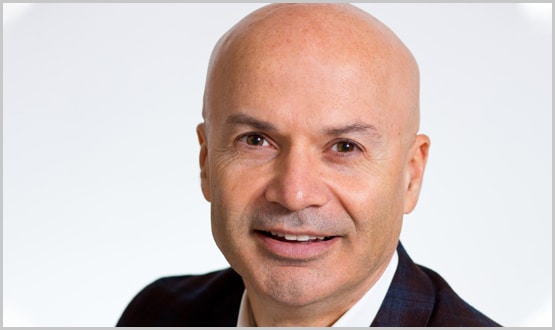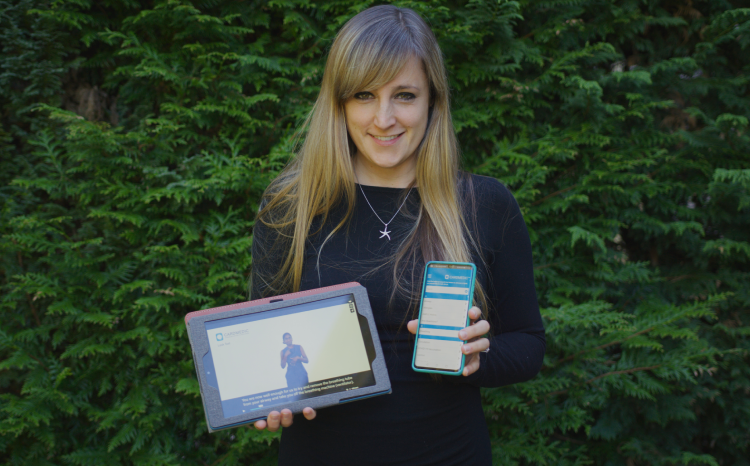In our next Industry Spotlight, Maja Dragovic speaks to Erkan Akyuz, chief executive at Lyniate, about the company’s mission to advance interoperability in healthcare.
We have reached a point where the sheer amount of health data – whether from a ward in a hospital, a GP, or even an Apple Watch or Fitbit – is scattered around and feels unmanageable and chaotic. Hence the reason everyone in healthcare is talking about interoperability as a tool to connect these data systems and make the most use of the information.
In this complex net of different vendors, solutions and areas of the healthcare ecosystem, the Lyniate mission, says Erkan Akyuz, the company’s chief executive, is to “build connections for a healthier world by bringing order to chaos” and “aligning the many layers of interoperability in healthcare”.
Akyuz identifies three main layers that make up the healthcare ecosystem: systems of record, systems of intelligence, and systems of engagement. Lyniate, he says, is in the middle of this ecosystem, “connecting and orchestrating the data flow among all of these systems to enable person-to-person information sharing”.
One of the ways the organisation strives to achieve this alignment is with its healthcare interoperability platform, Lyniate Rhapsody, which supports all healthcare message formats and standards, including HL7 v2 and v3, FHIR, CCDA, DICOM, and XMAL amongst others, as well as legacy formats. It is a scalable platform with the ability to process over 3,500 straight through messages per second on a standard Intel server. Today, Rhapsody processes more than a billion messages per day globally.
New technology releases
Since carving out Rhapsody from Orion Health in 2018, the company has been on a steadfast mission to cover the crucial corners in healthcare interoperability. In 2019 it merged with Corepoint Health, and this year it has released two new versions of Rhapsody and another version of Lyniate Corepoint, as well as new products that were not in its portfolio prior to 2021.
One of the new products is Lyniate Rapid, which is an API gateway and management tool that helps healthcare systems as well as healthcare IT vendors manage and secure API communications in FHIR and non-FHIR formats.
Lyniate Rapid is designed to be vendor-agnostic. Rapid customers include Lyniate interface engine users and users of competitive solutions. Regardless of integration solution, they can pair it with Rapid to optimize API access to data.
Another new product is Lyniate Image Director, a solution targeting image exchange between hospital-based acquisition devices, such as CT or ultrasound, to non-hospital-based radiologists. Image Director supports radiologists by ensuring every relevant image for a patient is present at the time of reading – across PACS systems and across facility boundaries.
“It is becoming a common trend that the reading radiologist is not located in the acute care setting, and they are reading the images remotely,” Akyuz explains.
“Image Director focuses on providing access to images from across many organisations so that care providers have the full patient context when they’re making decisions and writing the diagnosis.”
The company has also recently acquired the Datica integration business, which expands their API management, cloud operations, and managed services resources.
“In conjunction with this acquisition, we released a product called Lyniate Envoy, which further enables interoperability as a managed service,” Akyuz says.
“This is a cloud-based solution that expands our ability to meet the modern hybrid requirements of healthcare organisations.”
Flexibility is key
Speaking to Digital Health from the Lyniate headquarters in Boston, Akyuz points out that the company’s focus is to bring a high level of flexibility to its customers, hence any of its technology can be run on premises, off premises, or in a hybrid mode. Lyniate is the first healthcare interoperability company that offers a fully managed cloud offering, a hosted cloud offering, and on-premises offerings. Lyniate also delivers services to implement these products, making them a full-service partner.
“We provide health data integration as an infrastructure service, meaning that you run the services on the cloud, we manage the infrastructure, we monitor the infrastructure, and we can even complete the interface configuration for customers,” Akyuz adds.
“Customers can run the products on AWS or Azure, their choice, as a managed service or as software as a service.”
Patient data in the cloud
Cloud is still a sensitive topic amongst healthcare providers, with the safety of patient data and cyber security a significant concern.
“This is a real threat for providers around the world, and we are making sure that our products are securely developed, securely deployed, and secure in the place that they’re deployed,” Akyuz explains.
One of the first Trusts in the UK to use cloud is West Hertfordshire NHS Trust who are using Rhapsody as a service on the cloud. Others rely on Rhapsody as a security hub.
“While all the systems are connected in Rhapsody, if one of the systems is compromised, that system disconnects in Rhapsody so the rest of the architecture can continue to work without being compromised,” Akyuz says.
“From that perspective, investment in cybersecurity, investment in cloud, investment in the new technologies like FHIR and others is extremely important for us. And to walk the talk, we continue to invest 70 to 80% of the revenue that we generate into R&D.”
People focused
While focusing on technology is important, prioritising people is imperative at Lyniate, says Akyuz, adding that the company’s number one focus is people: its employees, its partners, and its customers. With almost 240 employees and serving 5,000 customers around the world directly or through partners like Phillips, the company strives to be the best internally as well as externally.
“Our purpose has always been to create the best interoperability company with the best potential to grow and to do more for our customers,” Akyuz explains.
“This is not a technology company focusing on the technology for the technology’s sake. This is a technology company focusing on a technology for the people’s sake.
“And that comes by putting the people first including our employees, our customers, and our partners. People are our number one.”
Having a 99.6% customer retention speaks volumes of the Lyniate determination to fulfil its mission.
Contact Lyniate:
Website: www.lyniate.com
Twitter: @lyniate
Linkedin: Lyniate







